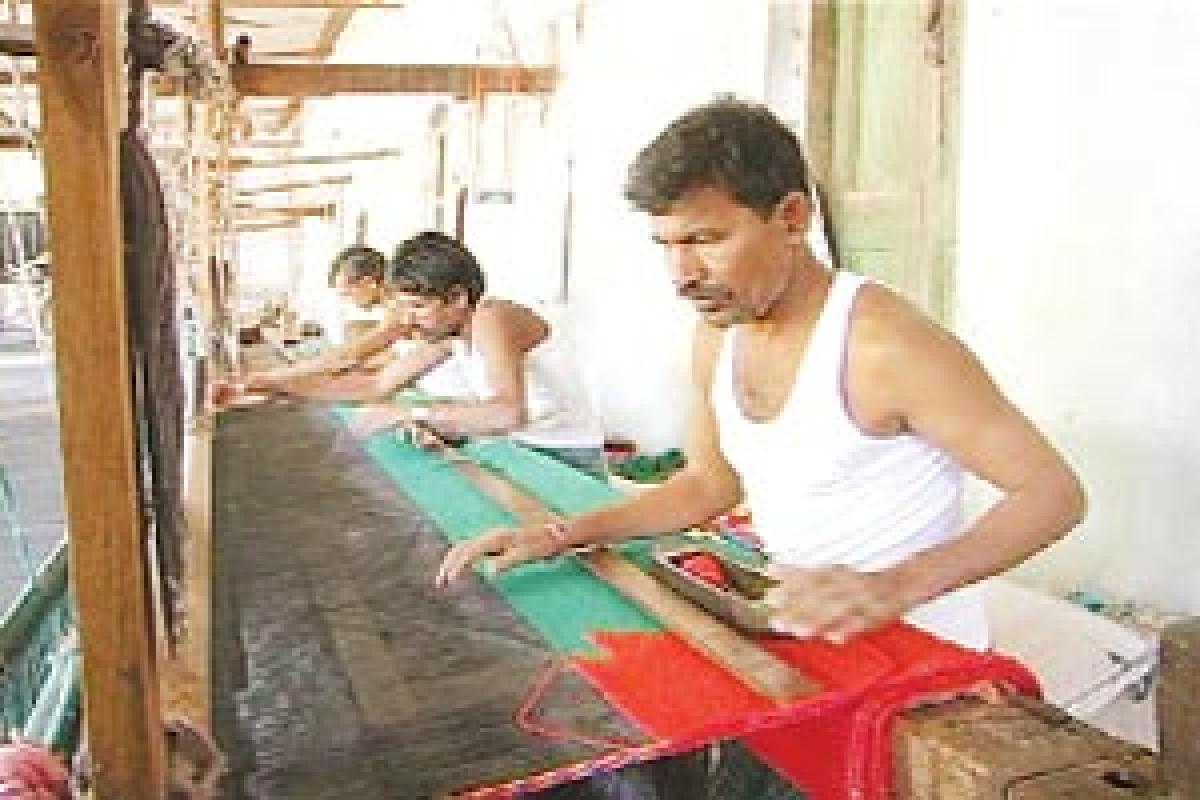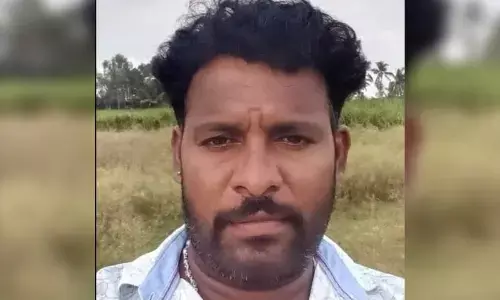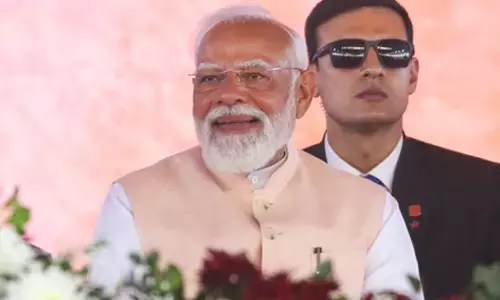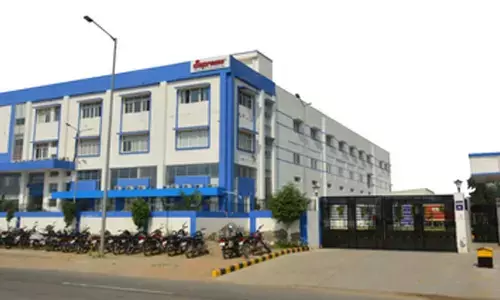Wails of Vavilala weavers fall on deaf ears

Even as the State government is leaving no stone unturned to promote handloom industry and district authorities have been instructing government employees to wear handloom cloths at least one a week, the Khadi weavers of Vavilala in Jammikunta mandal are struggling to make their both ends meet.
Karimnagar: Even as the State government is leaving no stone unturned to promote handloom industry and district authorities have been instructing government employees to wear handloom cloths at least one a week, the Khadi weavers of Vavilala in Jammikunta mandal are struggling to make their both ends meet.
Thrown out of their employment and engaging themselves as casual hands to eke out a living, these weavers are crying foul over the lack of people’s patronage to Khadi textiles and the governmental support to the Khadi industry in Telugu States unlike in other States.
Earlier, Khadi weavers used to get at least 300 days of work in a year unlike the present 150-200 days of work in a year. Their skill is not able to fetch them at least Rs 150 a day making it impossible for them to meet education and hospitalisation expenses of their family members. Khadi workers appeal to the government to promote Khadi textiles on the lines of the handloom textiles to improve their condition.
Khadi textiles woven in Vavilala were reputed all over the country. Several prominent leaders used to wear the textiles woven in this remote village and also the national Tricolor that used to flutter atop Red Fort in Delhi used to be woven by these weavers. But it is a thing of the past.
The Khadi unit that was established in 1929 by a disciple of Mahatma Gandhi became so popular subsequently. The Khadi unit was started under the title Maharashtra Charaka Sangh by Gandhiji’s disciples Anna Saheb Sahasrabudhi and Leleji. The unit commenced production deriving inspiration from the boycott of foreign goods and Swadeshi movement led by Gandhiji.
It grew in popularity with each day and won several awards and rewards at the national level. It provided employment to thousands of weavers in those days. In 1951, Bhagyanagar Khadi Samiti came into existence. In 1967, Metpalli Khadi Gramodyog Prathisthan got disassociated from it. In 1983, the Vavilala Khadi Gramodyog Prathisthan was separated from the Samiti.
Former Prime Minister PV Narasimha Rao was officiated as chairman of the institution during his reign as the Prime Minister of the country. The Vavilala Khadi Gramodyog Prathisthan workers wove jeans and shirts keeping in mind changing tastes of the people. Its workers received award in 2005 as the best Khadi weavers. The organisation was honoured twice in 2009 with national awards for being the best Khadi unit.
But the awards are not sufficient to satisfy one’s hunger pangs. Till 1995, the Centre used to provide working capital to the Khadi units. Afterwards, it suspended the facility. The units were asked to avail loans from banks at concessional rates of interest. The Centre is extending a 20 per cent rebate on Khadi textiles. The State government’s rebate funds (5%) promised since 1997 are yet to be paid to the Khadi units. Rs 8 lakh still remains as due from the government of Andhra Pradesh.
The governments of Gujarat, Tamil Nadu, Karnataka, Maharashtra and Kerala are extending rebates on Khadi textiles ranging between 5 and 20 per cent and lending support to them. But, unfortunately, it is not the case with the Telugu States. According to a Khadi weaver Narsaiah, he has been associated with the Kahdi unit for well over three decades.
Initially, several weavers were dependent on the unit for their livelihood. With the decrease in production and for want of work, many workers deserted the unit. He is anticipating that promotion of Khadi textiles on the lines of handlooms will result in increased orders to the unit. Again the workers hands will be full with work, he hopes.
According to another worker Ramesh, he has been associated with weaving Khadi textiles for well over 15 years. Previously, his family members were also engaged in the production work. He lamented that he was not able to earn at least Rs 150 a day towards wages. He said he and his fellow weavers were not in a position of avail treatment in hospitals with their meager earnings. He is appealing to the State government to extend medical treatment facilities by way of issuing health cards.
According to weaver Srilakshmi, she does not know any other work other than weaving. The daily wage that she earns is not sufficient to meet the schooling expenses of her wards. She is appealing to the State government for support to have full work. She said she was praying for the mercy of rulers.
By Ch Gopalakrishna














